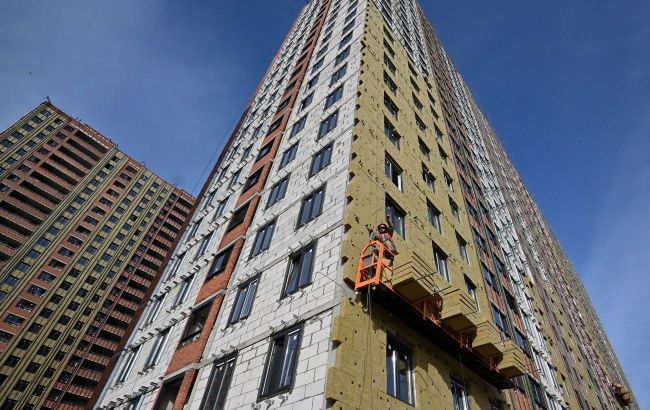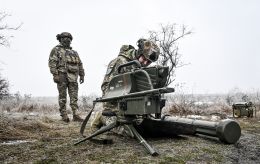North Korean workers in Russia face 18-hour shifts and sleep standing up
 North Koreans in Russia work for one hundred dollars a month (photo: Getty Images)
North Koreans in Russia work for one hundred dollars a month (photo: Getty Images)
Thousands of North Korean men arrive in Russia for grueling jobs, where they are monitored and forced to work more than 18 hours a day. Many cannot endure the conditions and flee, BBC reports.
It turns out that the influx of North Koreans to the aggressor country is linked to a severe labor shortage, which has worsened due to the war in Ukraine. This information was provided to journalists by an anonymous South Korean intelligence official.
Several North Korean citizens who managed to escape from the harsh work in Russia said they had to work in terrible conditions under the supervision of overseers.
One of the men shared that after arriving in Russia, he was ordered not to speak to anyone and not to look at anything. He was then immediately sent to work on the construction of high-rise buildings, where shifts lasted more than 18 hours a day.
The escapees said they would wake up at 6 a.m. and work until 2 a.m. the next day, having only two days off a year.
Many workers' hands and bodies became numb from the labor; some fell asleep standing up during work, but overseers noticed this and beat them.
"It was truly like we were dying," one of the escapees said.
Moreover, at night they had to work on construction sites without lighting and with almost no safety equipment.
North Korean workers had to sleep in dirty, overcrowded shipping containers infested with insects, or on the floor of unfinished apartment buildings, covering the door with tarpaulin to protect themselves from the cold.
Journalists learned of one case in which a man fell from a height of four meters at a construction site, sustaining significant facial injuries. However, he was not allowed to see a doctor and was forced to keep working.
Interestingly, most of the workers' earnings are handed over to the North Korean budget, and for a month's work they actually receive only $100–200. They can collect this money only after returning home — a measure intended to prevent escapes from Russia.
It is expected that Pyongyang will soon send more than 50,000 citizens to work in Russia. Most of them are employed in construction, but there are also jobs at garment factories and IT centers, which violates UN sanctions.
However, Russia is trying to bypass the restrictions, for example by allowing North Koreans to enter on student visas.
In June, Russian Security Council Secretary Sergei Shoigu stated that 5,000 North Koreans would be sent to help rebuild Kursk.
A South Korean intelligence official, however, believes there is a high probability that men from North Korea will be sent to the Russian-occupied territories of Ukraine to rebuild infrastructure.
"Russia is suffering a severe labour shortage right now and North Koreans offer the perfect solution. They are cheap, hard-working and don't get into trouble," said Andrei Lankov, a professor at Kookmin University in Seoul and a well-known expert on North Korea–Russia relations.
In July, two aides to North Korean leader Kim Jong Un traveled to Beijing. Their visit was related to construction projects.
Kyrylo Budanov, head of the Main Intelligence Directorate of the Ministry of Defense of Ukraine, stated that North Korea supplies Russia with almost half of its ammunition.

